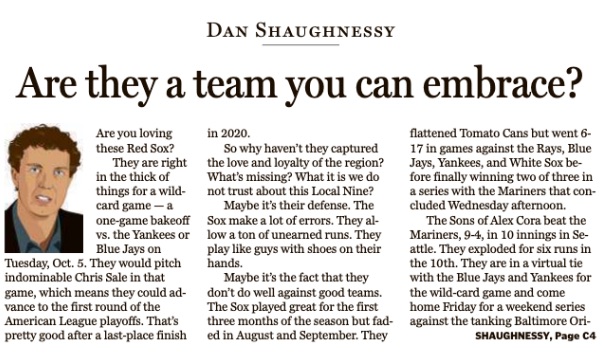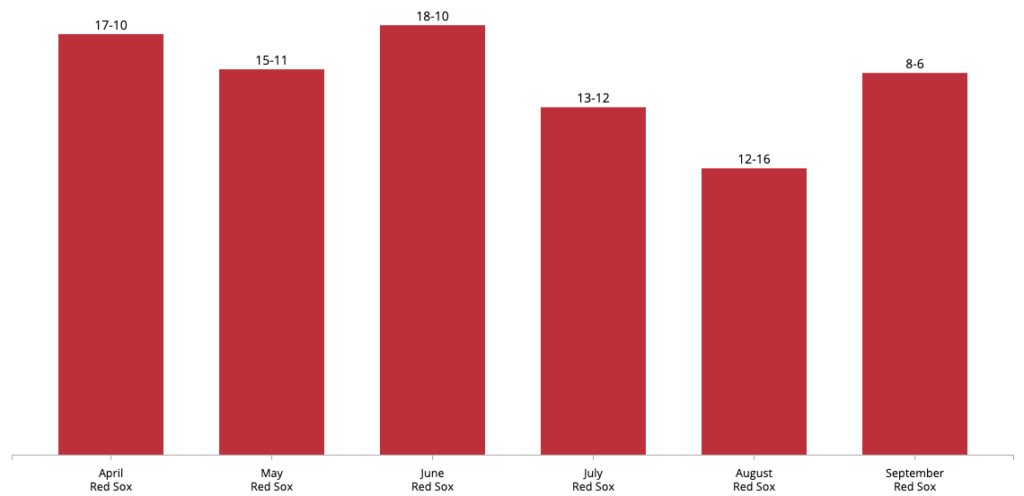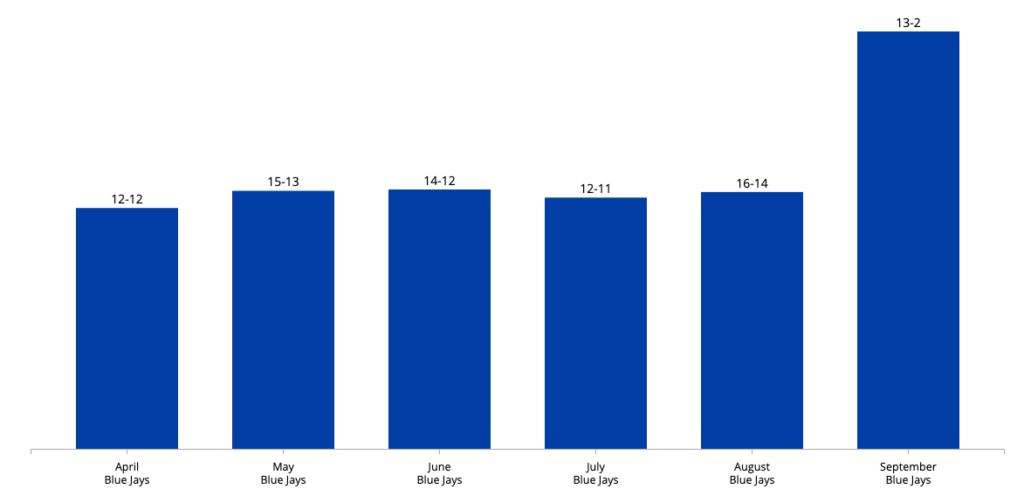Why it’s hard to love these Red Sox

In yesterday’s Boston Globe, Boston’s most visible sportswriter, Dan Shaughnessy, wrote a column about the Red Sox asking, “Are they a team you can embrace?”
In case you’re not a Red Sox fanatic like many of us here in New England, here’s the backstory. The Red Sox seemed like a team unlikely to go far at the start of this season, but unexpectedly led their division by four and a half games in July. But since then, they’ve faded and their rivals — the Rays, the Yankees, and the Blue Jays — have surged. Now the Rays will almost certainly win the division, while the Sox must fight the other two teams for their only path to the postseason — a one-game Wild Card playoff.
Generally, Sox teams in playoff contention get enthusiastic fan backing. This time, the enthusiasm is muted. And Shaughnessy suggests some of these reasons:
- They’re one of a few teams unable to reach the benchmark of 85% vaccinated — which points to a selfish failure to consider the effect of one’s actions on the team.
- Perhaps as a result, 14 players have spent time on the COVID-19 list, unable to play. Instead, we’re forced to watch a bunch of unfamiliar faces from the minor leagues and castoffs from other teams who are plugged in as pitchers, middle infielders, and outfielders. There’s a lot of “Who is that guy?” going on.
- They tend to beat bad teams and lose to good teams.
- Their defense stinks. It’s basic stuff, like throwing errors and failing to hit the cutoff man. According to Statcast, Red Sox opponents are hitting 19 points better than they should, based on the type of contact they’re making. That’s on the sloppy and uninspiring defense.
I can’t go further without mentioning the state of Major League Baseball itself — one in four at-bats ends in a strikeout, pitchers can’t go six innings, it takes 24 seconds to throw a pitch, and games average three hours and eight minutes long. It’s hard to get excited about anybody with games like that.
The reason we’re not in love with the Sox is obvious, and Shaughnessy missed it
This one chart explains why New England is meh about the playoff-contending Red Sox:

The Red Sox started hot and cooled off. In August, they had a losing record, and they were flirting with .500 in both July and September.
Their record for the season is 83 wins, 65 losses, for a .561 winning percentage. But the point is that in the first three months of the season, they were at a healthy and exciting .617 (50-31), on a path to a dominant season. For the rest of the season, they reverted to being a middling team, at .492 (33-34). If they make it to the playoffs at all, they will be backing in, relative to their excellent performance in the first three months of the year.
During the season, you’re as good as your last few games. Fans don’t remember the start of the season. They remember last week. And lately, the Sox have been losers, or at least not winners.
Compare this to the Blue Jays, who have an almost identical overall record right now of 82-64.

That’s the complete inverse of the Red Sox — about .500 through August and then a huge surge in September. Now that’s a team you can love!
The reason we don’t love the Red Sox is they’re playing poorly lately. It’s that simple.
Ask yourself this. Based on their records in September, if the Red Sox meet the Blue Jays in that wild game playoff — which is very likely — who would you pick to win?
Shaughnessy could have just written “We don’t love the Sox because they’re finishing like a team that, lately, often finds a way to lose.” It’s hard to love a team like that. It’s that simple.
Baseball is unwatchable these days IMHO. Launch angles and strikeout rates mean less action. The number of no-hitters doesn’t stem from excellent pitching. Too many batters are trying to hit home runs. Shifts don’t help either.
Limited attention spans of younger viewers, baseball’s lack of swag and collapsing interest among black athletes contribute to baseball’s diminishing appeal. Recall also that as persons pursue streaming over cable connectivity, game access has declined.